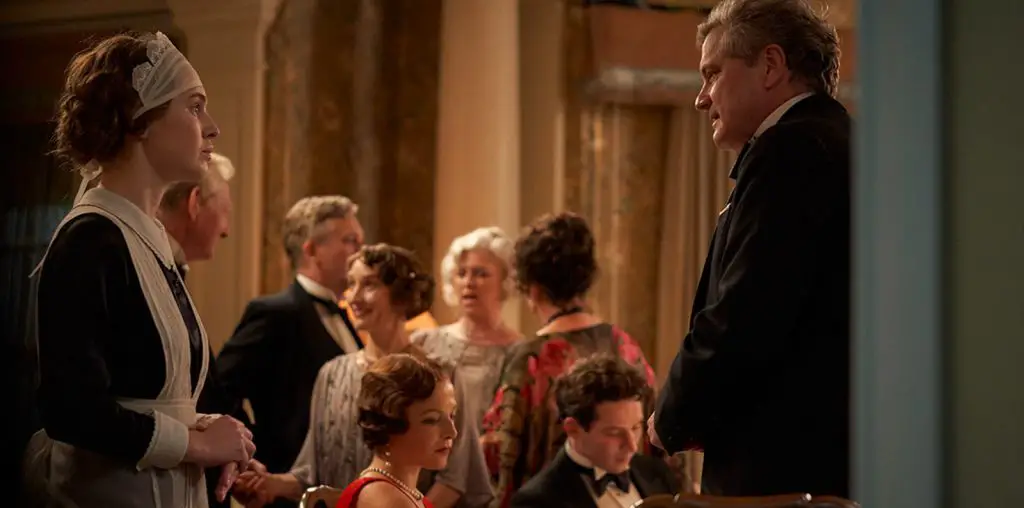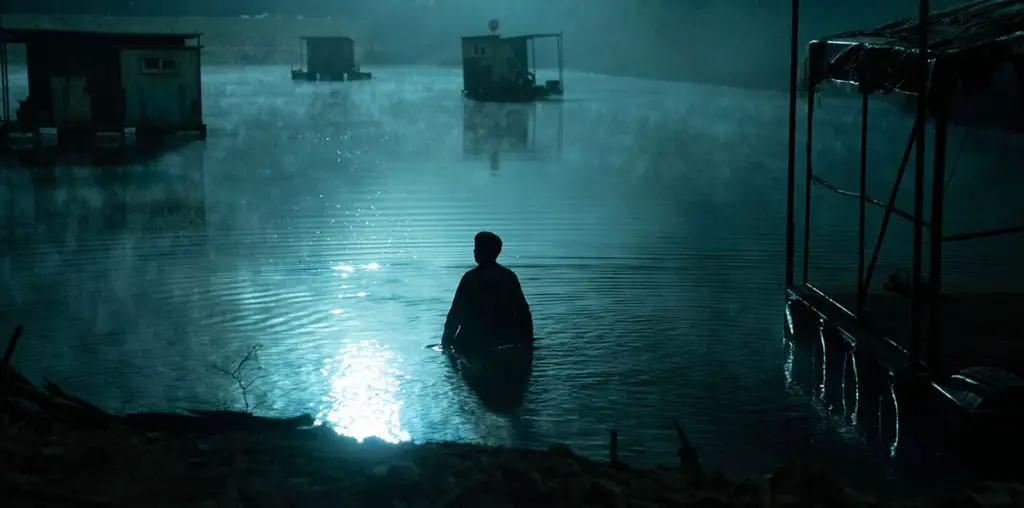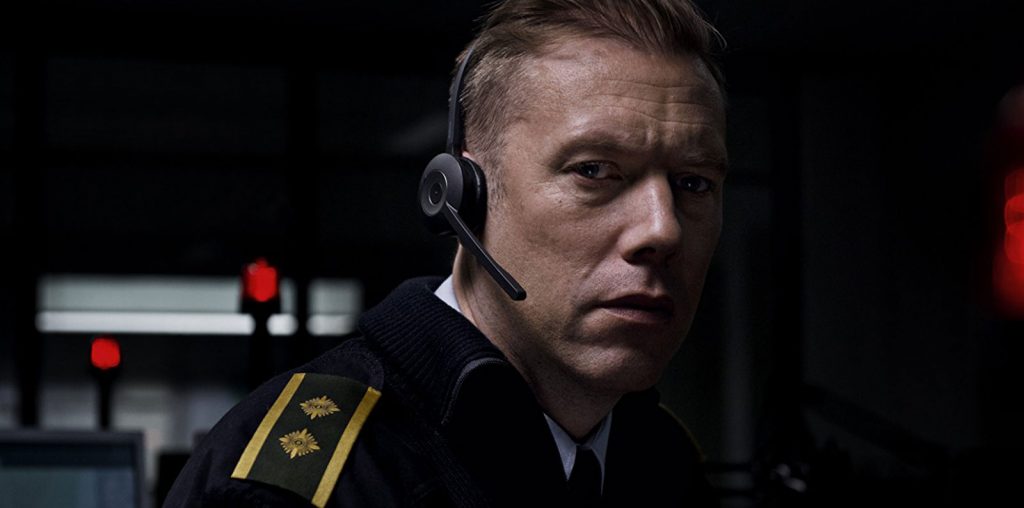
NEW TO NETFLIX! While Training Day was a sprawling, multi-character action-filled meditation on police corruption, Antoine Fuqua’s The Guilty goes in almost the opposite direction. There is effectively only one character on screen for most of the run time, a cop, and we’re supposed to sympathize with him — kind of, but more on that later. It is a bold choice to take what could easily be an action move and turn it into a glorified play, with star Jake Gyllenhaal delivering his lines into a headset, only hearing, never seeing the other side.
This may seem like a clever thing done for filming during COVID, but this is a remake of a 2018 Danish movie. But whatever the reason, it also serves as an acting and directorial challenge, one which Gyllenhaal and Fuqua are more than up to. Nic Pizzolatto wrote this adapation. Fuqua and Pizzolatto are no strangers to remakes, having collaborated on the 2016 remake of The Magnificent Seven. It is interesting here to see them synthesize their takes on our imperfect system of seeking justice.
Joe Bayler (Gyllenhaal) is a cop at the edge of his breaking point. He’s estranged from his wife, who won’t even let him talk to his kid. As a result, he behaves like a jackass to his colleagues and even to the people he’s trying to help on 911 calls. But when a call comes in from a kidnapped woman, who is worried about her children all alone at home, Joe sees something that unleashes a torrent of emotions, not all of them constructive.
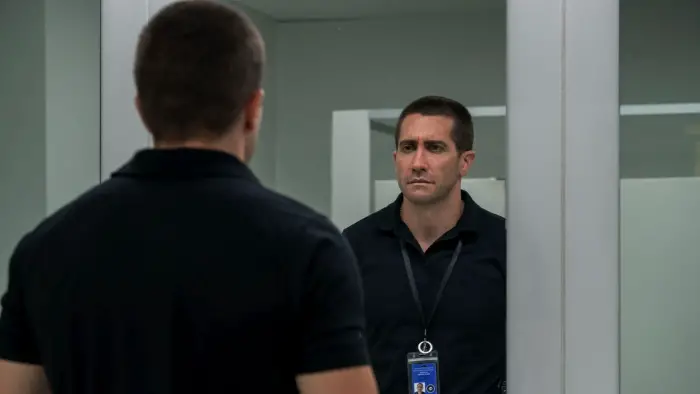
“…a call comes in from a kidnapped woman…Joe sees something that unleashes a torrent of emotions…”
In general, I’m not that big a fan of mostly single-actor productions or things that seem like an adapted play. Plays are a specific art form, and film is another. The strength of cinema is that it is so visual and provides a much larger canvas. That’s wasted when everything happens in one location. Still, The Guilty manages to keep things interesting with a propulsive plot. Just about the time you would be getting bored, another call comes in, or our protagonist has some kind of crisis.
There are other benefits too. For example, Gyllenhaal gets to act his a*s off. About 80% of the movie is largely his face on camera. And since he’s on the verge of a breakdown the whole time, there’s plenty of angst and tension to work with. Not seeing the other side of the calls adds another layer – we’re filling it in with our imagination, and we’re right in his shoes, feeling helpless with limited information and few tools. The voice cast of callers is an all-star one, including Ethan Hawke, Peter Sarsgaard, Paul Dano, among others. Most of them are fairly unrecognizable, although now and then, you’ll say, wait a minute, that sounds like Bill Burr!
There undoubtedly will be people who’ll completely reject the premise of The Guilty, that it is impossible to put yourself in the shoes of a cop who has serious mental problems and has done something awful. He’s in denial and trying to cover things up — that’s a hard position to sympathize with. But it is clear that he’s aware of the conflict between his values and actions. It’s what’s tearing him up while he struggles to attain some measure of redemption. You don’t have to sympathize with a character to find something moving and valuable in their struggles. We’ve all done something we regret. How we deal with that reveals our humanity.
One of the central questions here is when we’ve got it all on the line, do we want a cop who will go all out to help us, no matter the law or the consequences? I’ve always hated that particular trope because it ignores all the collateral damage and assumes cops have perfect knowledge and are paragons of virtue. The Guilty shows us that we should be careful what we wish for.
The Guilty screened at the 2021 Toronto International Film Festival.
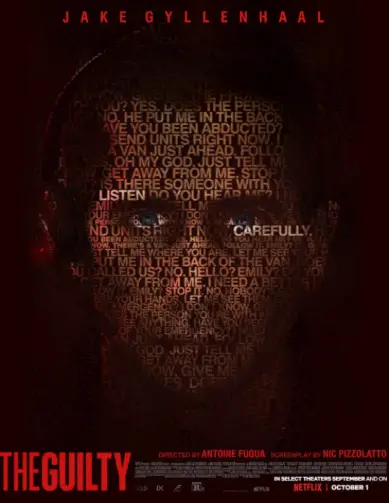
"…Gyllenhaal gets to act his ass off."
